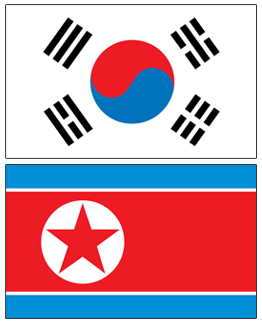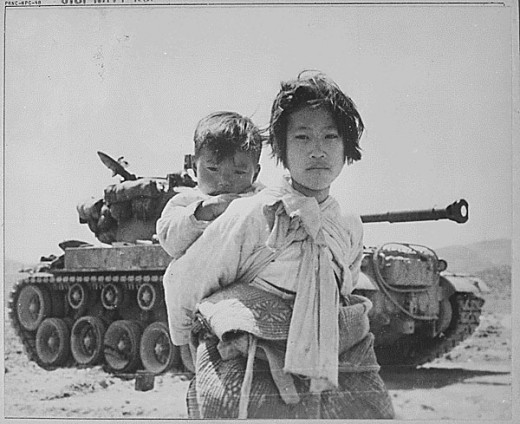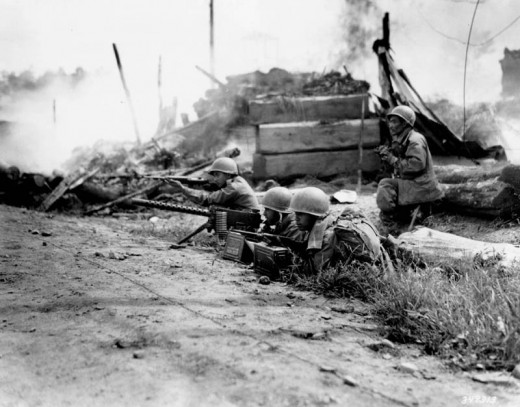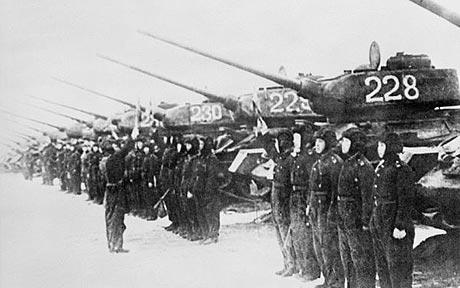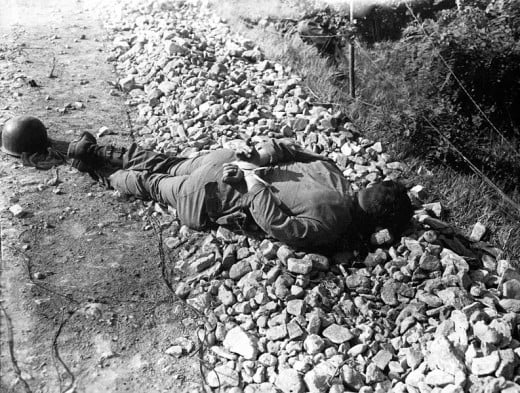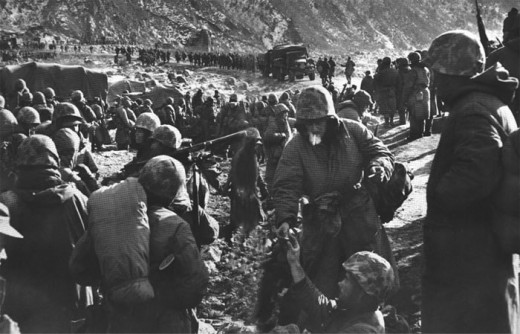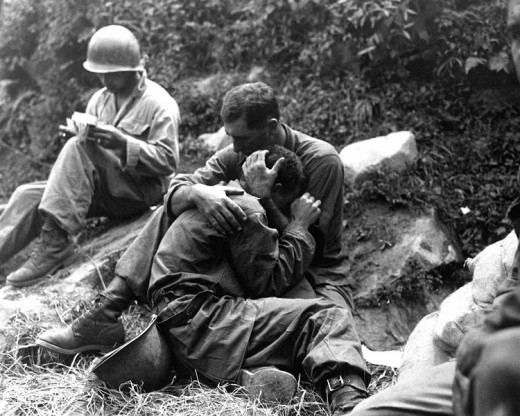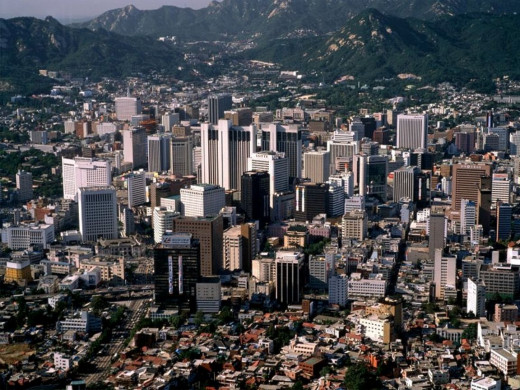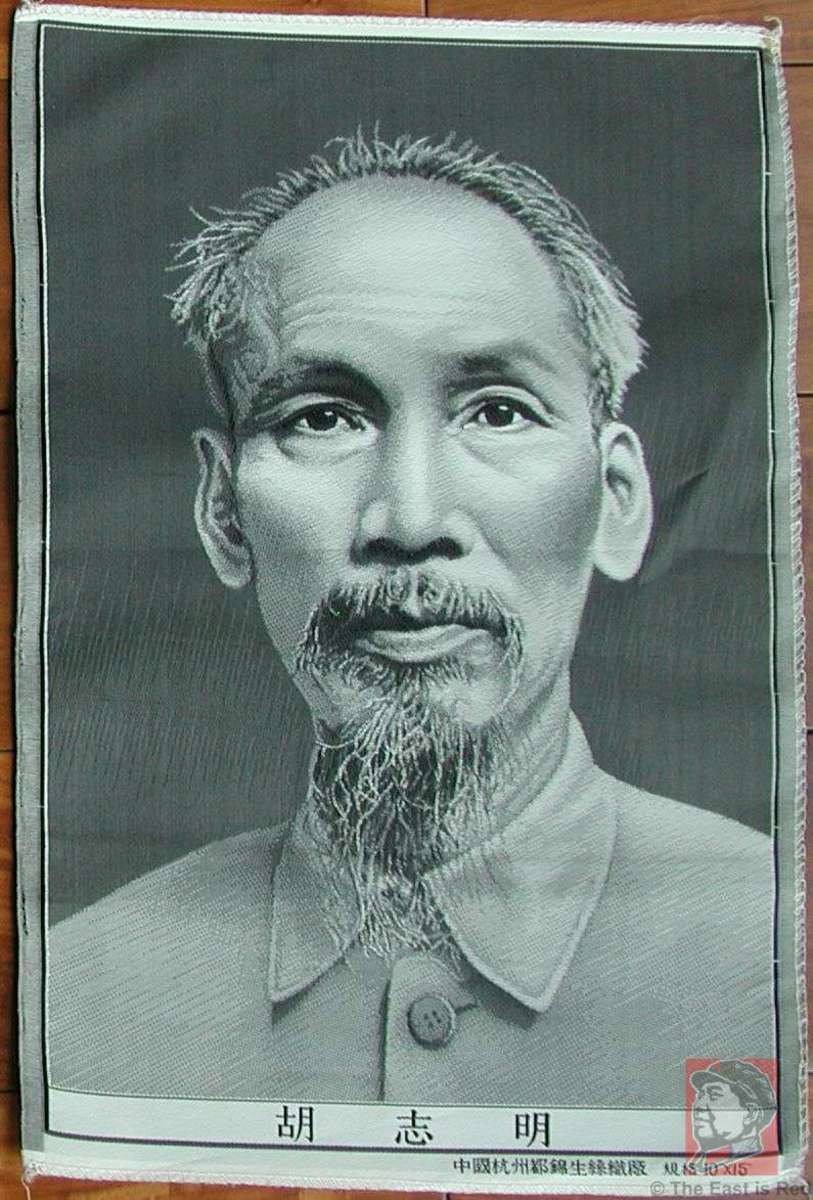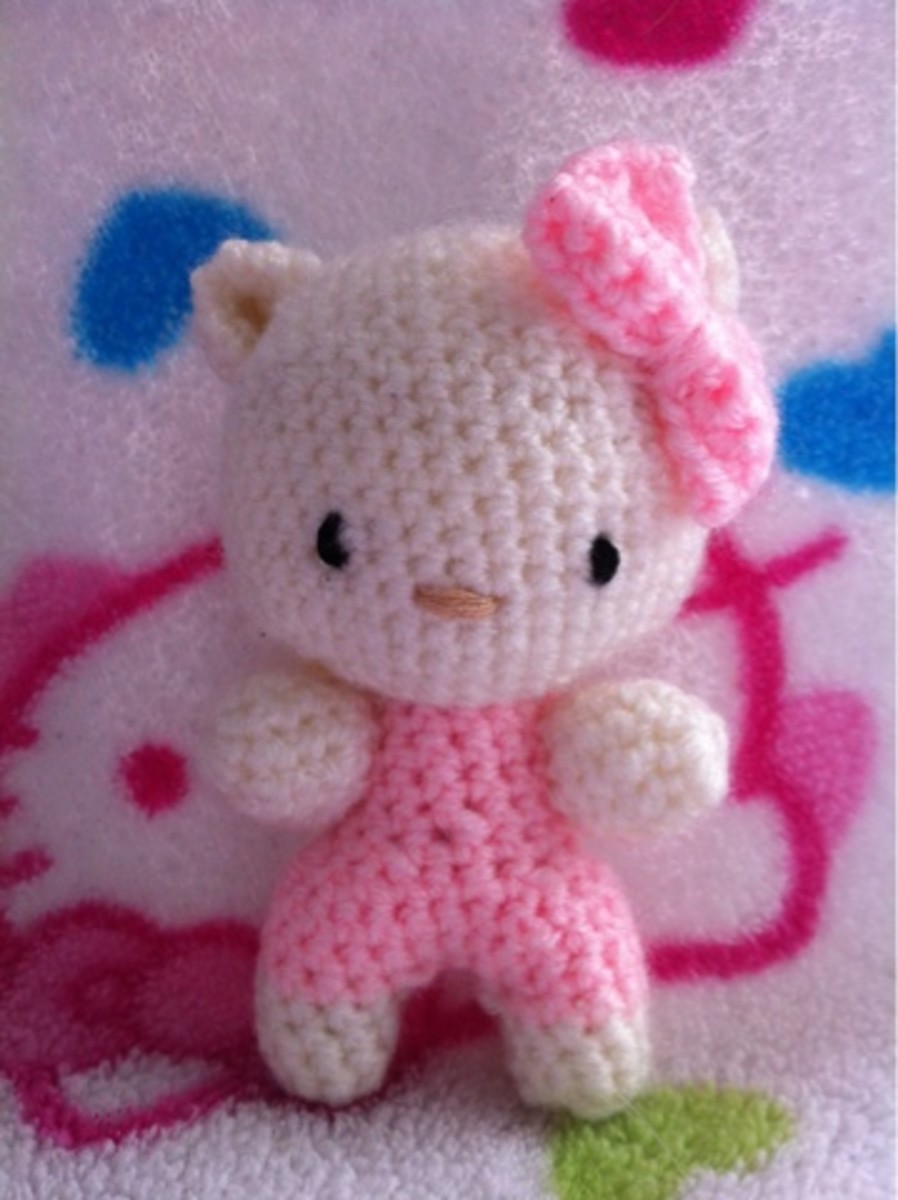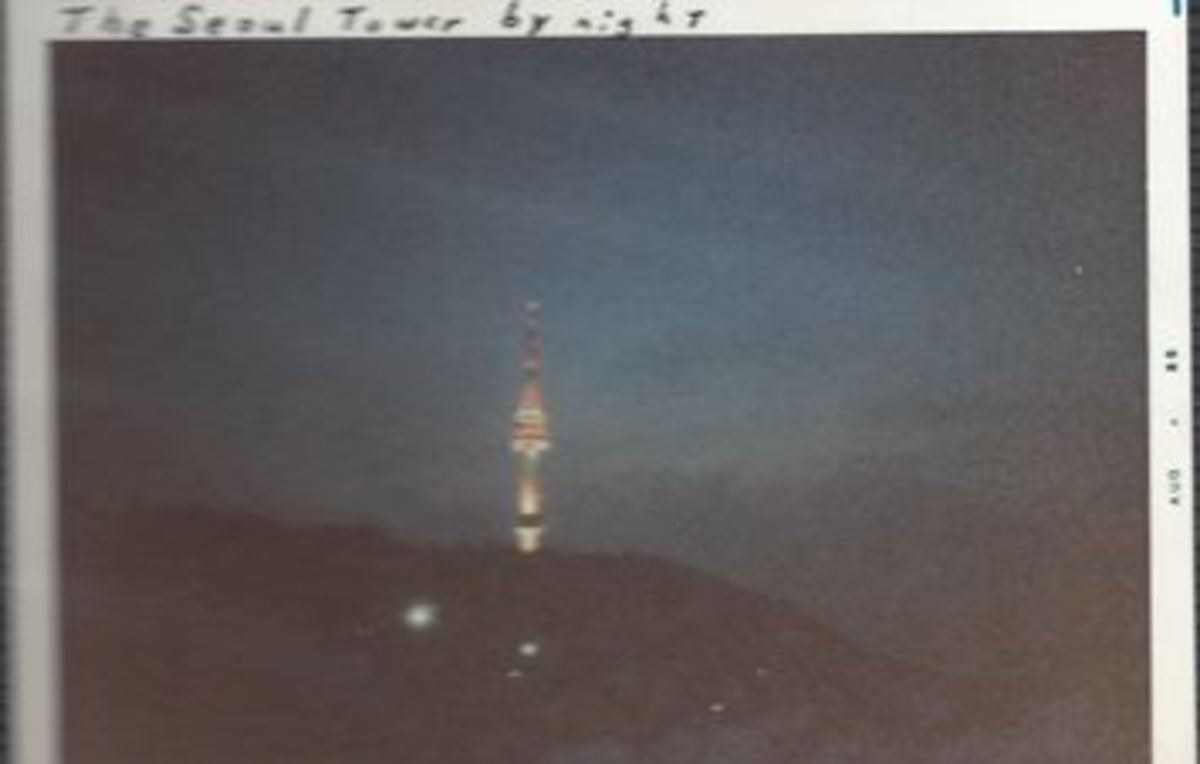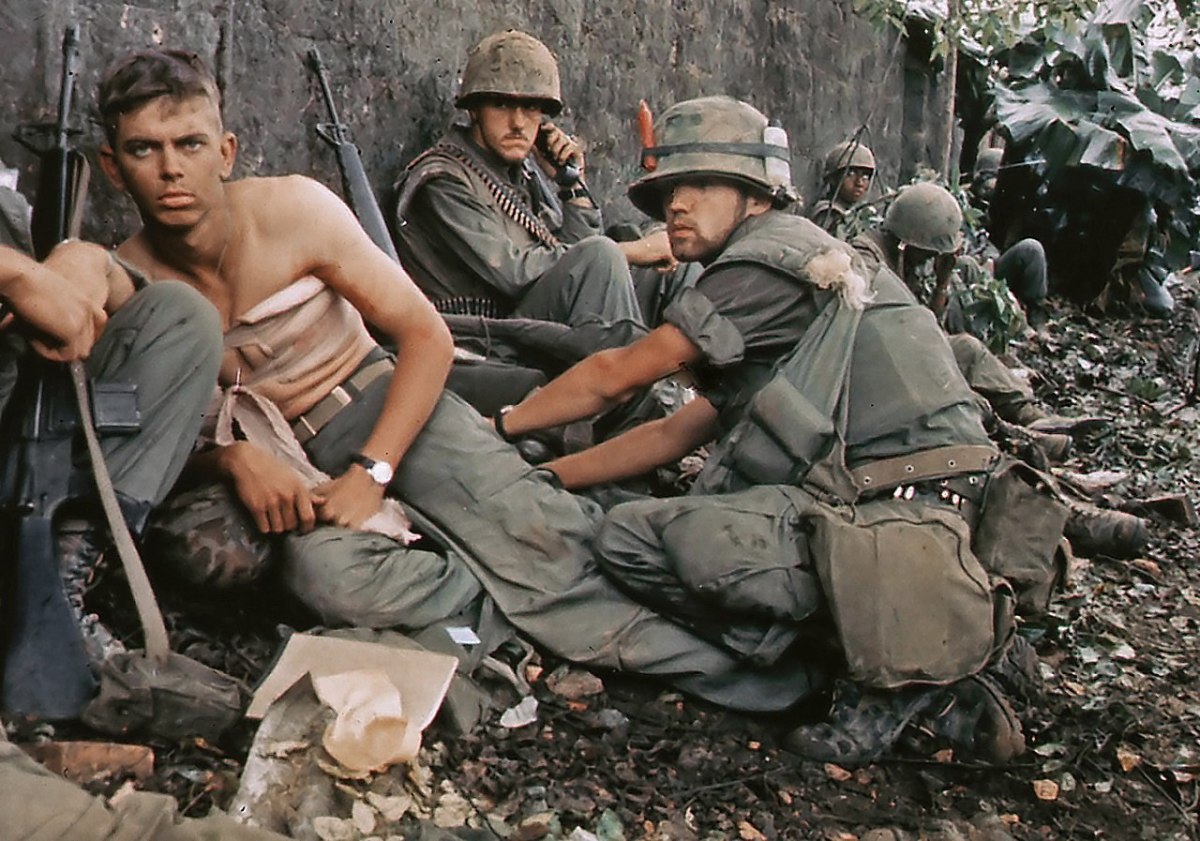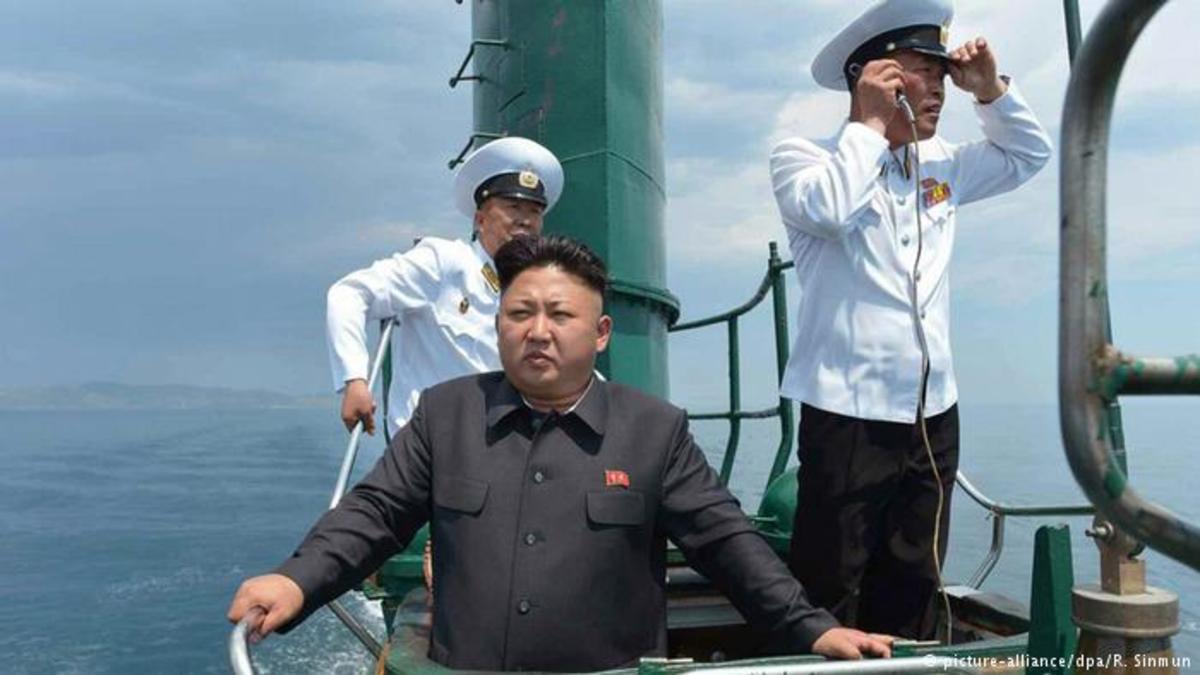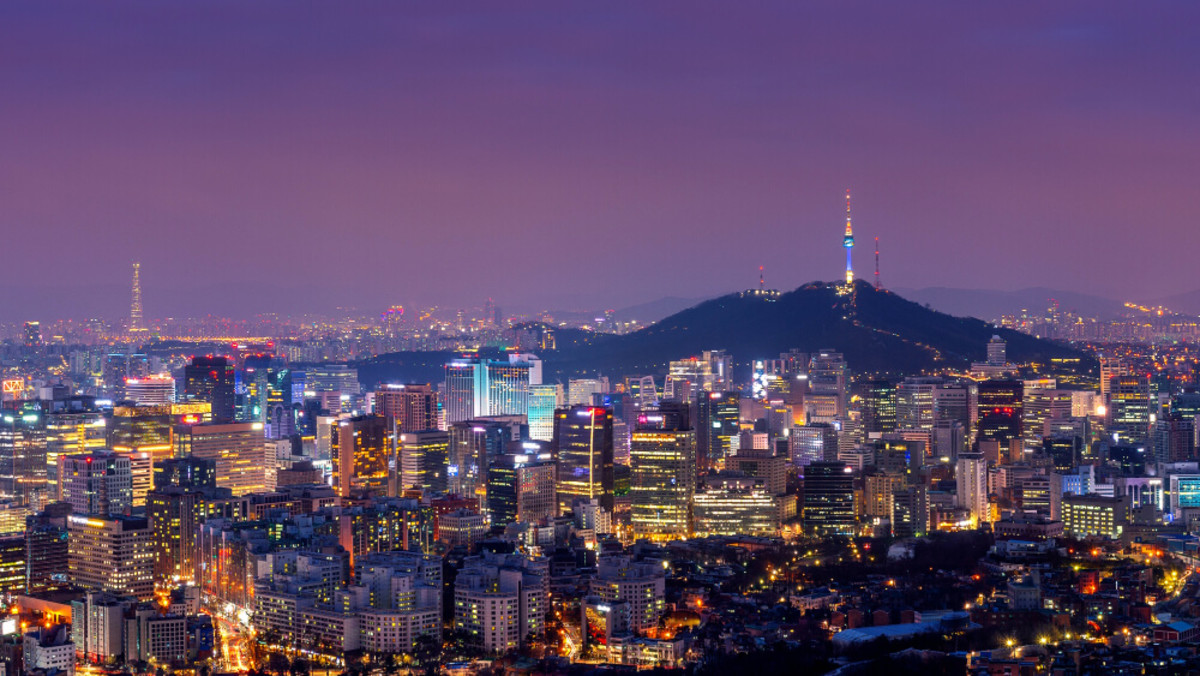The Forgotten War








63 Years and Counting...
It began at dawn on June 25, 1950 when the armed forces of the Democratic People's Republic of Korea (North Korea) poured across the 38th Paralllel invading the Republic of Korea (South Korea) in an attempt to forcibly reunite the two under the communist banner.
Over the next three years, an estimated 1,163,014 lives, military and civilian, from both sides would be lost. Even more were wounded or unaccounted for as fighting raged back and forth the length and breadth of the peninsula, finally settling into a stalemate not all that different from "The War to End All Wars" roughly along the original line of demarcation.
Finally, a cease-fire agreement was signed on July 27, 1953 suspending hostilities.
Suspending, not ending. There is no permanent peace agreement. The war continues.
Recipe For War
For much of its very long history, Korea was an independent kingdom.
In 1905, following the Russo-Japanese War Japan occupied Korea, annexing and essentially enslaving the peninsula in 1915.
As was the case in China some years later, the occupation was brutal: lands were confiscated, men shipped off to slave labor, and women forced into lives of "Comfort Girls," serving Japanese military officers.
Though greatly diminished, there is still some lingering resentment of Japan even today among the older population.
In the closing weeks of WWII, Stalin unleashed his armies on Japanese forces on the Asian mainland.
Stalin had waited to enter the Pacific War until very near the end for two primary reasons: 1, he had little choice but to allocate the vast majority of his forces to combat the German invasion, and 2, he wanted a similar share of influence in Asia as he had been given in Europe.
With Japan's surrender, Korea was partitioned North and South with the Soviet Union in control of the Northern half of the country ala' East Germany.
Installed as its founding President was Kim Il Sung, who immediately embarked on a policy of reunification under the People's Democratic Republic of Korea's Communist rule.
Meanwhile in the South, the Republic of Korea was established under fervent anti-communist, Dr. Syngman Rhee, who like his Northern counterpart ruled with an iron hand, jailing and/or executing political rivals and clamoring for war with North Korea.
Stalin had played his cards right, by including the Soviet Union in postwar planning in Asia, the Western Allies had unwittingly set the stage for one of mankind's bloodiest wars.
The rhetoric, threats and saber rattling from both sides would continue to increase throughout the late 1940's.
Then came June, 1950, and the North made good on its threats. So swift and massive was the invasion that the poorly-equipped and trained South Korean forces and their ill-prepared US allies were pushed to the southern tip of the peninsula near the port city of Pusan. The South Korean government all but collapsed.
Throughout the war, both Koreas would commit war crimes: As Syngman Rhee evacuated his government from Seoul, he ordered the "Bodo League Massacre," killing some 1,000 suspected leftists. At almost the same time, North Korean soldiers killed almost as many doctors, nurses, civilian patients and wounded South Korean soldiers at the "Seoul National University Hospital Massacre."
The "Pusan Perimeter" held as best it could until sufficient forces and supplies could be brought in, coupled with the Inchon landings, to allow a breakout.
Under Supreme Commander, Gen. Douglas MacArthur, Communist forces were swiftly pushed back to the 38th Parallel. Then MacArthur, disregarding Chinese warnings, continued north to the Yalu River.
China jumped into the conflict in October and November, 1950 and drove the allies back south.
The lines would shift back north, then south, then north again before finally settling into a frustrating stalemate and the inconclusive cease-fire of 1953.
In the Aftermath
Dr Syngman (In Korea, the surname comes first) ruled more or less ineffectually throughout the Korean War and remained in power until he was deposed by Park Chung-hee in a 1961 coup.
During the Park regime, from 1961 to 1979, South Korea achieved rapid economic growth, with per capita income rising to roughly 17 times the level of North Korea.
The ROK held its first free election in 1987 under a revised democratic constitution, with former Gen. Roh Tae-wooh winning the Presidency. In 1993, Kim Young Sam became the first civilian president, and in February of this year, Park Geun-hye became the country's first female president.
In the North, KIM Il Sung adopted a policy of ostensible diplomatic and economic "self-reliance" as a check against outside influence. The DPRK demonized the US as the ultimate threat to its social system through state-funded propaganda, and molded political, economic, social and military policies around the core ideological objective of eventual unification.
He would be succeeded upon his death in 1994 by his son Kim Jong Il, who in turn, was succeeded by his son, Kim Jong Un.
An Uneasy Peace
Korea is a battle-scarred land. Even today, the wounds can be seen in decades-old artillery emplacements, encampments, trenches and bunkers, some still in use. There are still terrible reminders of long-ago fighting: rusting hulks of burned-out tanks, crash sites, and the hardware of war can still be found in remote places.
There are more ghost towns in Korea than the American West, with towns and villages destroyed in war and simply abandoned and vanished with the passage of time, or bulldozed to make way for a factory or superhighway.
And from time to time, somebody- possibly a farmer tilling a field or construction worker on a building project- will set off some long-buried ordinance or other, or turn up human remains.
But, for the most part the scars have healed and most of the wreckage has been removed.
Peace, if an uneasy one, has done much to repair the damage, heal the scars and calm the fears.
Still though, there is an entire generation, now grown old and beginning to pass away that has vivid memories of when the tanks rolled, their cities burned and their land was ravaged. They remember a time when death, destruction, fear and starvation were the order of the day.
People who were children then tell stories of seeing the bodies, many hideously torn, burned or broken. They tell of seeing soldiers and civilians alike killed or wounded before their eyes. They tell of witnessing things no child should ever see.
They also watched through the six decades since as incident after incident brought the two Koreas and their allies to the brink of renewed hostilities. They've seen the skirmishes on land, at sea and in the air. They worried through the Pueblo incident.
They know it's a miracle fighting hasn't resumed in earnest.
They've also had flashes of hope. Hope of seeing loved ones trapped north of the 38th Parallel, only to have those hopes cruelly dashed by a regime that couldn't tolerate the thought of the inevitable defections. Then came the possibility of at least some limited trade.
Didn't happen. Neither did the promise of renewed talks to permanently end hostilities and begin the process of normalizing relations.
To say the least it has been an uneasy peace.
Still, the Republic of Korea has managed to build from the ruins of war a strong nation with a vibrant economy. Their export products are in demand and sell well worldwide (example: my wife & I own a Hyundai Accent and this very laptop was made in the ROK).
They hosted the 1988 Summer Olympics.and will host the 2018 Winter Games.
Seoul hosted the G-20 summit in November 2010 and the Nuclear Security Summit in March 2012.
South Korea also secured a non-permanent seat (2013-14) on the UN Security Council.
The Koreans have rich cultural traditions that have survived through centuries of war and foreign occupation.
They are a proud people I came to respect and admire while stationed there. They are honest and industrious with an enviable work ethic. They are fiercely independent and do not accept charity easily.
Koreans are keenly aware of and greatly appreciate the role we and our UN allies played and continue to play in their national survival and security, yet are supremely confident in their own ability to defend themselves.
And they are quite prepared to do so.
Don't Touch That Dial!
Coming up in the next installment: We'll examine what we know about North Korea and its unpredictable leadership. We'll also take in all the recent events and provocations, compare the opposing forces and take a stab at trying to guess the next move.

